50's
- 1958 HENRI DEBS QUINTET
- 1959 HENRI DEBS QUINTET
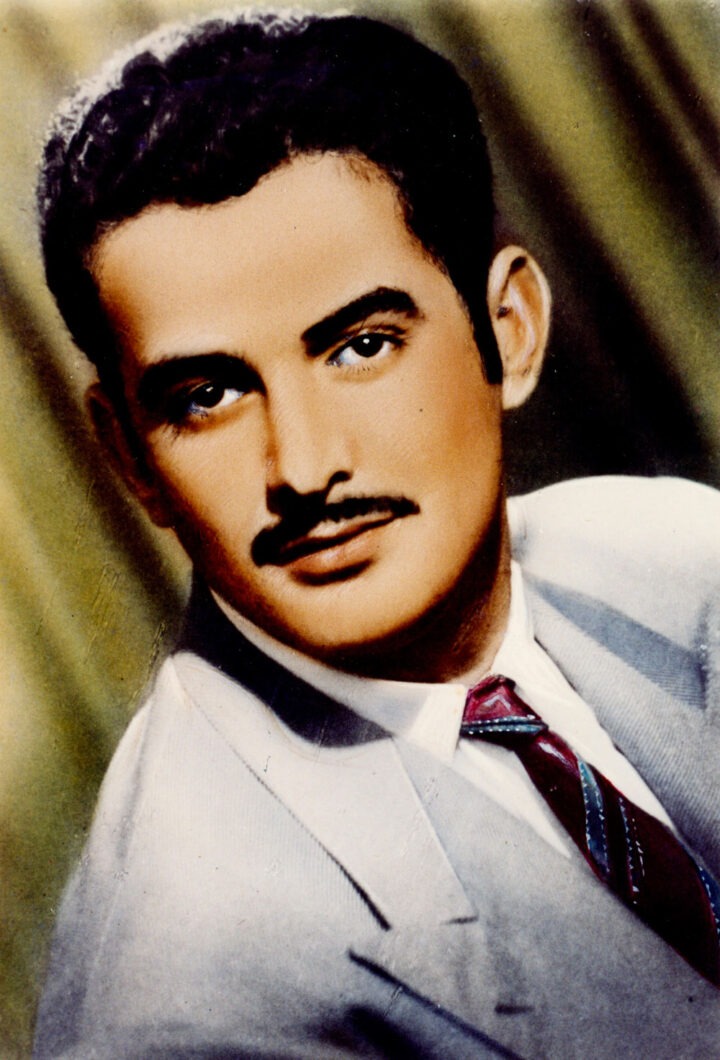
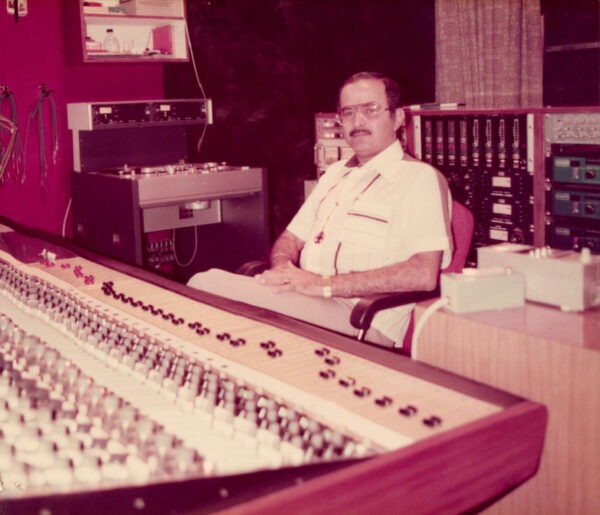
Henri Farid Debs was born on November 24, 1932 in Pointe-à-Pitre in Guadeloupe.
Coming from a very modest family, his father Farid Debs and his mother Julia had a second son, Jean, born in 1935. Following the death of his wife the same year, Farid married Manouche as a second, with whom he had six children: Liliane, Raymonde, Claude, Georges, Eva and Philippe. It was Manouche who raised Henri and Jean as his own children, when they were only 3 years old and 5 months old respectively when their mother died.
At the age of 14, the eldest of eight siblings, Henri was forced to drop out of school in order to work to support his family. He was then hired as a "store boy" with his godfather, Mr Mansour, where he swept the broom during the opening and closing hours of the store. Moved by a lively ambition and a precocious impetuosity, Henri decided to set up on his own and became a traveling merchant in the streets of Pointe-à-Pitre in 1952.
From an early age, Henri already had a burning passion for music and its varied sounds, which he enjoyed listening to and playing with his friends from the neighborhood.
Self-taught, he began with the saxophone and then continued by learning the guitar and the double bass. Gifted and inhabited by a natural artistic soul, he very quickly integrated the best orchestra of the moment, El Calderon jazz by Brunel Averne, then the Esperanza orchestra.
For several years, Henri Debs performed on the most beautiful stages of the Guadeloupe archipelago and his fame experienced a meteoric rise.
In 1958, the prosperity of his professional activities enabled him to open his own clothing store at Maison Eraville, at 20 rue Lamartine. But, undeniably devoted to the practice of music, he set up a small recording studio in the back room. This is how the beginnings of the Disques Debs label were born with the first 45 rpm, "Pain, boudin et lemonade" which was pressed under the Socodisc brand in 1959.
Then, it was his childhood and neighborhood friends that he began to record: Manuela Pioche, Al Lirvat, Paul Blamard, Edouard Benoît, Daniel Gargar, Emilien Antile, Robert Sarkis, Gérard Laviny and so many others… made them roar with their voices and instruments the walls of this working studio.
His garish passion for music and the fury of his success prompted Henri Debs to open his first music store in 1960 at 43 rue Frébault in Pointe-à-Pitre. From then on, it was the true blossoming of the Debs production and the recordings followed one another regularly.
Thus, in 1965, Henri helped open his brother Georges' music store in Fort-de-France in Martinique, bequeathing him the merchandise of his own production.
Later in 1968, Henri Debs created his own group, Henri Debs and his combo with which he performed in the nightclubs of Le Gosier and the Riviera until the day he created his nightclub, Club 97-1. . It was the hottest venue at the time, where he played with his band sold out every Saturday and the eve of public holidays.
It was on the first floor of this nightclub that he established his first professional recording studio, "La Terreur" in 1969.
A year later, Henri Debs inaugurated at 116 rue Frébault his second music store where enthusiasts bought instruments, equipment and vinyls from the illustrious artists of his production: Lola Martin, André Condouant, La Perfecta, Experience 7, Typical Combo, Les Aiglons, Serge Christophe, Alain Jean-Marie and many others.
At the same time, Henri Debs enlisted the youngest of the siblings Philippe Debs, in his musical adventure both in his stores and in the den of the studio.
In addition to this fraternity, a tenuous collaboration hatched which lasted for the years that followed.
In 1968, while performing at his club one evening, Henri Debs met Rose-Marie Sarkis. Admiring the artist, she fell under the spell of the man. True mutual love at first sight, it was on March 3, 1973 that they were married in Paris in complete privacy. From this seasoned love, was born their son Henri nicknamed “Riko”. Over the years, Rose-Marie has become the essential personality of the family business through her involvement from the development to the sale of records. Loved and respected by all, she became her husband's ante and contributed immensely to the enlightened rise of Debs production.
In 1973, Henri Debs helped open a second record store in Martinique run by his younger brother Jean Debs, guaranteeing him all fitting musical merchandise. Six years later, Jean opened his Debs music store in Paris and until this day became the official distributor of the Debs production for the territories of Europe and Africa.
The year 1980 marked the beginning of the most fruitful collaboration of Henri Debs's singing career with the recording of his first album with Mr Max Séverin aka "Maxo".
From this playful duo which very quickly became essential, a fraternal complicity was born beyond musical borders and sprouted 15 Max and Henri albums including a shower of now popular chants: "Nou ka pati an bodé", "Dance with the Antilles", "An ké bo'w la", "I will always come back", "A wi sa byen bon", "Sa yo vlé vwè la peké rivé" ...
In 1982, the Disques Debs International production was at the height of its business through a swarm of national and international productions in the Caribbean, South America, Europe and Africa, under the aegis of artists such as Zouk Machine, Malavoi, Max Séverin, Francky Vincent, Tanya St-Val, Eric Brouta, Georges, Plonquitte, Luc Léandry ...
Successful success, he annexed his recording studio in Le Gosier at 27 rue Frébault in Pointe-Pitre, benefiting from a larger space closer to his family. He invests colossal means in it, surrounded by a team of specialized engineers Mr Bob KATZ and his staff, who came especially from the United States; in order to enhance its production quality, thus raising its structure to the rank of the first major professional recording studio in the French West Indies equipped with a resolutely avant-garde "SSL 4000G console".
Ten years later, as the craze was building up, Henri Debs inaugurated a second recording studio above the first, equipped with high-end equipment that was revolutionary in the market.
It was in 1990 that Henri Debs saw the consecration of his career as a producer: the album Maldon by his group "Zouk Machine" was crowned with a platinum record for more than 300,000 records sold.
A few years later, at the Pôle Caraïbes airport, newly inaugurated in 1996, he opened a third record store whose shelves were full of productions by flourishing Zoukeurs: David and Corinne, Tatiana Miath, Claude Fostin, Jérôme, Mario Chicot, Philippe Dilo , On dot Kouchen'n, Love Stars, Metiss ...
Because Henri Debs had in him a sense of transmission and of immemorial heritage, he instilled in his son his passion for music and subsidized the opening of his label “Riko Rekords” in 1998. If it resounded yet urban sounds, Henri Debs, by his scattered musical knowledge and his innate genius, contributed to the construction and mixing of many albums of the production "Riko Rekords".
In 2000, Henri Debs proceeded to the opening of a fourth record store in the Milénis shopping center, at a time when the artists of his production were named among others Eric Farescour, Christian Nara, Rudy Brada, Robert Martino, Jeff Joseph , Jean-Jacques Gaston.
During this period, the worldwide difficulties associated with the physical sale of records increased and Henri Debs was forced to put his second recording studio up for sale in 2008 and close his store at the Milénis shopping center three years later.
However, keen to improve the quality of his recordings and modernize his structure, he entered the digital age by investing in the state-of-the-art "SSL-DUALITY SE" console.
It was during this decade that Henri Debs suffered the most painful drama of his life: the disappearance of his wife Rose-Marie in 2009.
He renamed his recording studio located at 27 rue Frébault, "Studio Rose-Marie" in memory of his beloved.
Henri Debs was above all a singer, performer, artist known and recognized for the plethora of hits with which the fifty or so albums swarmed, which he released in his personal capacity throughout his career. "Titan la", "You stalled the engine", "All year long mwen chèché", "Babich an mwen", "Dankit or bokit", "I am coming back to you Lord", "Asi plaj la", "Jalousi ka palé »And many others still resonate today.
Many renowned artists took part in compilations and performed titles by Henri Debs: Patrick St Eloi, Yannick Cabrion, Ralph Tamar, Paulo Albin, Marius Priam, Pascal Vallot, Medhy Custos, Mario Canonge, Dominique Bérose, Emmanuel Toussaint, Rodrigue Marcel, Pipo Gertrude, Gilles Floro, Paquito D'Riviera, Willy Salzedo, Mauricio Schmitt, Emile Volel, Willy Blonbou…
Henri Debs is also one of the few producers to have known all studio recording media: from two-track tape recorders to analog and digital consoles. In addition, he adapted to the changing music industry from vinyls, K7s, CDs, to digital content and produced some of the most prominent Caribbean artists.
He was the first author, composer, performer, multi-instrumentalist, sound engineer, producer, distributor, music publisher and record store in the West Indies, offering the best quality of resonance to Guadeloupe music - including those of Martinique, Dominica. and Haiti.
The production of Henri Debs represents 460/33 turns, 396/45 turns and 310 cds, that is to say more than 6000 titles. It is the most dense catalog of all the musical productions of the Caribbean combined.
From this immense musical career made up of prestigious encounters, explosive anecdotes, photographed moments but also moments of simplicity and exchanges between enthusiasts who have often become friends, Henri Debs decided to retrace its meanders and deliver his last words in his book Mémoire et Vérités sur la musique aux Antilles published in 2012.
Despite the many pitfalls encountered and the invectives suffered in particular by a minority of detractors who questioned his legitimacy to produce the cultural music of Guadeloupe because of his Lebanese origins, he always embodied the spearhead of the defense of the local cultural heritage. and considered himself “100% Guadeloupean, of Lebanese origin and French nationality”.
Henri Debs was a hard worker, keen to deliver the best of himself and of each of his artists. Sensitive to the detail of the slightest sound, he was in constant search of perfection and accomplished quality, even during his greatest hours of glory, as evidenced by his slogan "A KA DEBS, MIZIK LA TOUJOU PLI BEL".
This was undeniably the key to his success.
On the threshold of his life, braving the many stairs leading him to his recording studio, ignoring his illness and the old age which overwhelmed him, Henri Debs worked with the same enthusiasm, sitting on his black armchair behind his console.
Inhabited by an ineffable passion, illuminated by an indescribable genius, Henri Debs embodies the dream of success. Starting from nothing, he built an unprecedented heritage and cultural musical empire that left an imperishable imprint in the world of music and even beyond.
Henri Farid Debs died on August 19, 2013 at the CHU in Guadeloupe.
His disappearance was relayed by all print, television and radio press organizations through portraits, testimonies of relatives and broadcast of his clips and hits.
The local political class, the media, the artists, his friends and his family as well as an anonymous crowd of more than 7000 people paid him a vibrant tribute on the occasion of his vigil organized at the doors of his legendary studio of registration.
His remains now lie alongside that of his wife in the Pointe-à-Pitre cemetery.

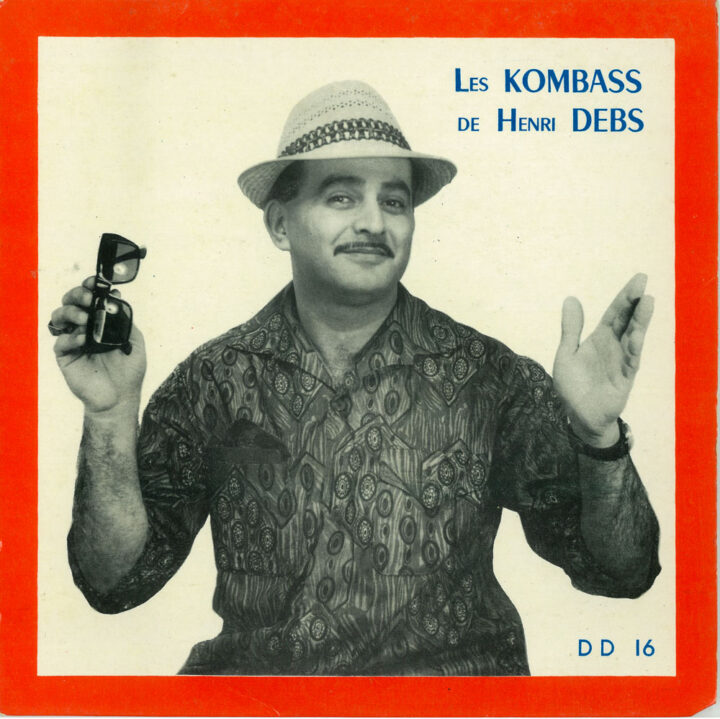
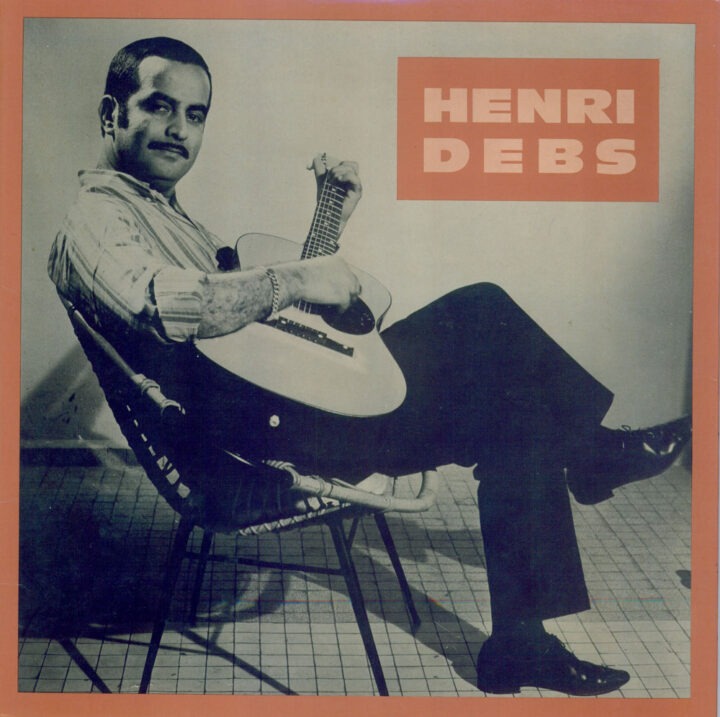
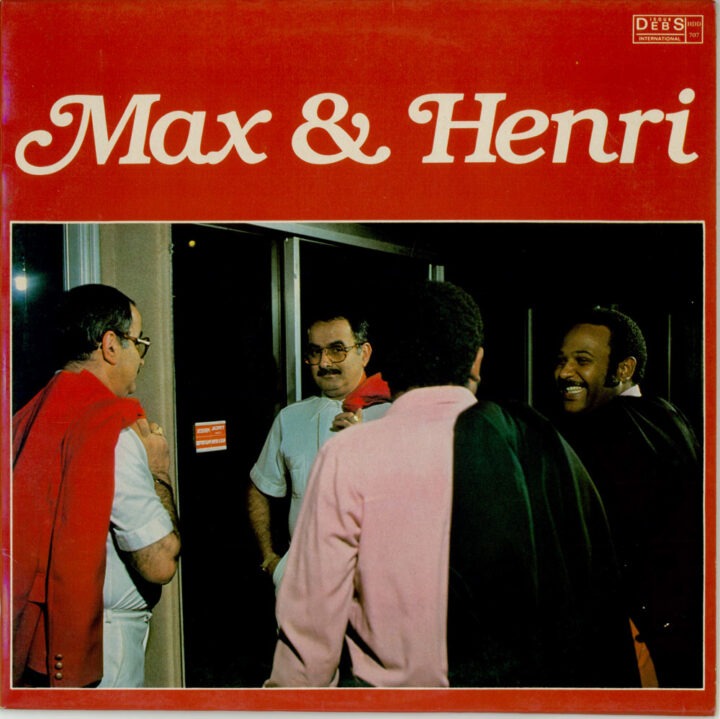
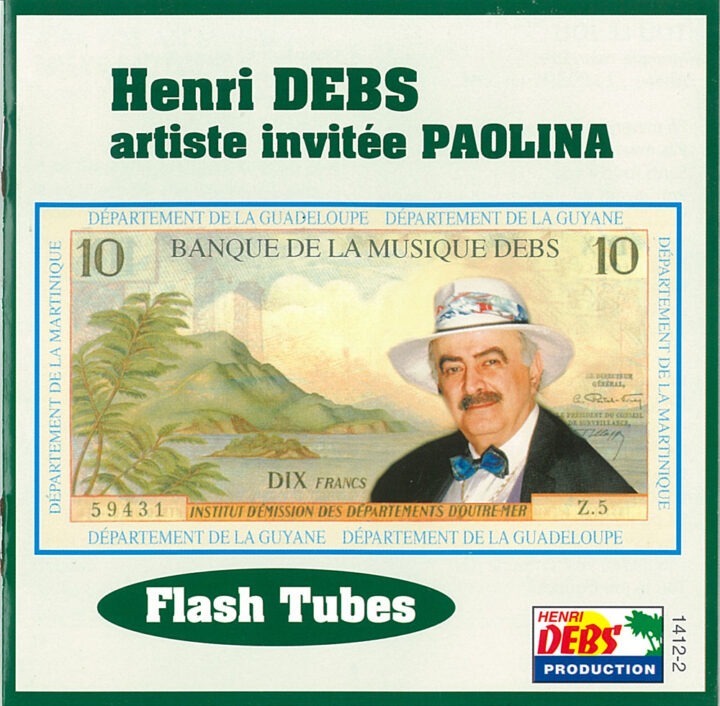
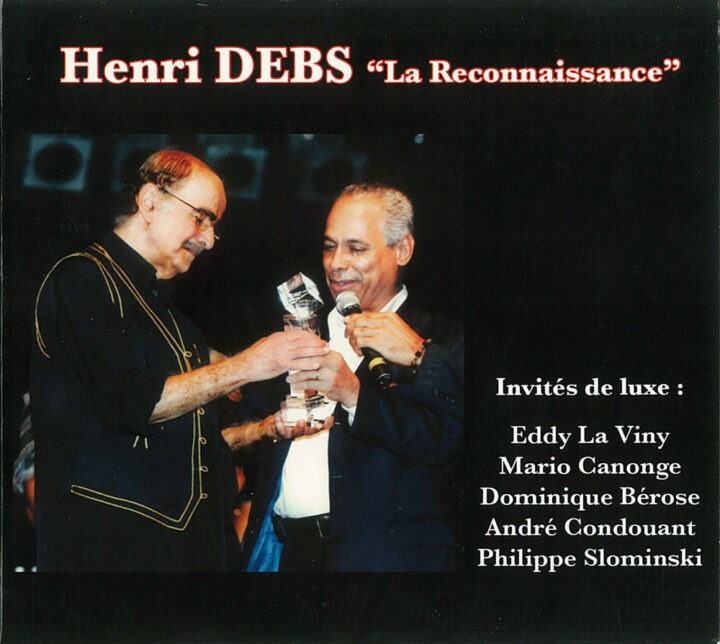
Oops! We could not locate your form.